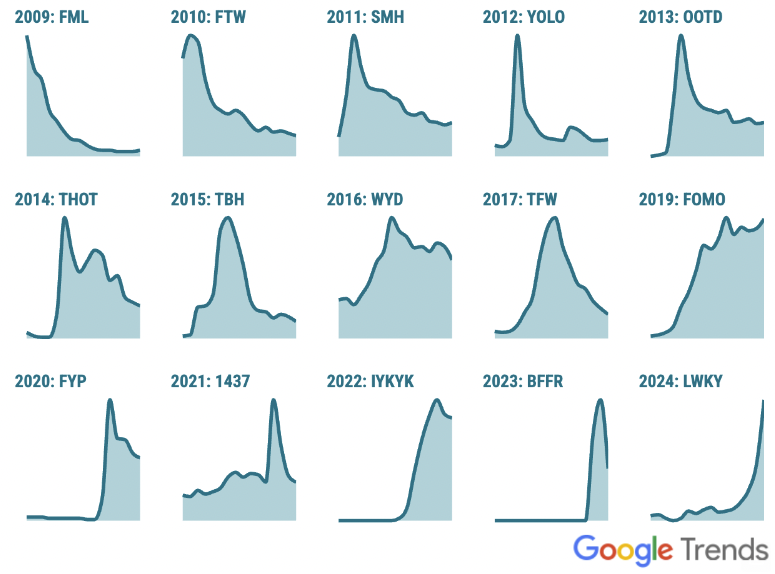When it comes to mental health support, understanding the difference between a psychotherapist and a psychologist is crucial. Both professions play a vital role in helping individuals improve their mental well-being through therapy and treatment. However, there are distinct differences in their education, licensure, and treatment approaches that are important to consider.
Psychotherapy and psychology are interconnected but have unique characteristics. Psychotherapy is an umbrella term that includes some types of psychologists, such as clinical and counseling psychologists who can practice psychotherapy. However, not all psychotherapists are psychologists. Psychotherapists use various therapeutic modalities to offer talk therapy and treat mental health conditions. They work in different settings like clinics, hospitals, and schools.
On the other hand, psychologists study human behavior, diagnose and treat mental health disorders, and can perform academic research. They require a doctoral degree in most cases and have higher education and licensure requirements compared to psychotherapists. Psychologists can work in various positions and environments, including research and teaching.
Key Takeaways:
- Difference between psychotherapist and psychologist lies in their education and licensure requirements.
- Psychotherapists primarily provide talk therapy, while psychologists can perform academic research and make complex diagnoses.
- Both professions aim to improve mental health and well-being through therapy and treatment.
- Psychotherapists work in various settings, while psychologists have a broader range of career options.
- Choosing the right professional depends on individual needs and preferences.

What Is a Psychotherapist?
A psychotherapist offers talk therapy to treat a variety of mental health conditions. They are trained professionals who help individuals navigate and overcome challenges such as anxiety, depression, and relationship issues. Psychotherapists use evidence-based practices and apply different therapeutic modalities based on the specific needs of their clients.
During therapy sessions, psychotherapists employ techniques such as cognitive behavioral therapy, art therapy, and play therapy to facilitate healing and growth. These one-on-one therapy sessions typically last between 30 to 60 minutes and provide individuals with a safe space to explore their thoughts, emotions, and experiences.
Psychotherapists work in various settings, including schools, hospitals, clinics, and businesses. They cater to clients of all ages, from children to adults, and offer therapy to individuals, groups, families, and couples. With their expertise in talk therapy, psychotherapists play a vital role in supporting mental well-being and helping individuals achieve a healthier and more fulfilling life.
Benefits of Psychotherapy with a Psychotherapist
- Provides a non-judgmental and supportive environment
- Allows individuals to gain insight into their thoughts, emotions, and behaviors
- Helps develop effective coping strategies
- Fosters improved communication and relationship skills
- Empowers individuals to make positive changes in their lives
“Psychotherapy is a collaborative process that helps individuals explore their inner world, gain self-awareness, and develop the necessary tools to overcome challenges and achieve personal growth.”
In summary, psychotherapists are skilled professionals who provide talk therapy to address various mental health conditions. Through evidence-based practices and therapeutic modalities, they create a safe space for individuals to explore their thoughts and emotions. Whether working with individuals, families, or groups, psychotherapists play a vital role in promoting mental well-being and helping individuals lead happier and healthier lives.
What Is a Psychologist?
A psychologist is a professional who studies human processes and behavior. They have a deep understanding of how individuals think, feel, and behave, and they use this knowledge to help people improve their mental well-being. Psychologists are trained in conducting research, diagnosing mental health disorders, and providing counseling and therapy to individuals of all ages.
Psychologists play a crucial role in the field of psychotherapy, utilizing evidence-based practices to help clients overcome challenges and achieve personal growth. They employ various therapeutic modalities and treatment approaches, such as cognitive-behavioral therapy, psychodynamic therapy, and humanistic therapy, tailoring their interventions to meet the unique needs of each client.
In addition to psychotherapy, psychologists may also specialize in specific areas, such as neuropsychology, child psychology, or forensic psychology. They can conduct assessments and evaluations to provide accurate diagnoses and treatment recommendations. Psychologists often collaborate with other professionals, such as psychiatrists, social workers, and counselors, to provide comprehensive care for their clients.
Overall, psychologists use their expertise in human behavior and psychological principles to provide compassionate and effective care for individuals seeking help with their mental health. Through research, counseling, and therapy, psychologists strive to improve the well-being and quality of life for their clients.
| Key Points |
|---|
| Pyschologists study human processes and behavior |
| They provide counseling and therapy to individuals of all ages |
| Psychologists utilize evidence-based practices and therapeutic modalities |
| They can specialize in various areas and conduct assessments |
| Their goal is to improve mental well-being and quality of life |
Similarities Between Psychotherapists and Psychologists
Psychotherapists and psychologists share several similarities in their practice that contribute to improving mental health and overall well-being. Let’s explore these commonalities:
- Talk Therapy: Both psychotherapists and psychologists use talk therapy as a primary treatment modality. They engage in one-on-one sessions with individuals or conduct group therapy sessions to address mental health concerns.
- Graduate Degree and State Licensure: Both professions require a graduate degree in their respective fields as a necessary qualification. Additionally, psychotherapists and psychologists must obtain state licensure to practice legally.
- Listening Skills and Empathy: Both psychotherapists and psychologists possess excellent listening skills and empathy. They create a safe and nonjudgmental space for clients to express their thoughts and feelings.
- Creativity: Psychotherapists and psychologists demonstrate creativity in their therapeutic approaches. They adapt their techniques according to individual client needs, utilizing various evidence-based practices.
These shared qualities help psychotherapists and psychologists effectively support individuals on their path to mental well-being.
Quote:
“Psychotherapists and psychologists both play crucial roles in promoting mental health and helping individuals navigate life’s challenges.” – Dr. Sarah Thompson, Clinical Psychologist
Table: Comparing Similarities Between Psychotherapists and Psychologists
| Similarities | Psychotherapists | Psychologists |
|---|---|---|
| Treatment Approach | Talk therapy | Talk therapy |
| Educational Requirements | Master’s degree in psychology or related field | Doctoral degree (Ph.D. or Psy.D.) in psychology |
| Licensure | State licensure required | State licensure required |
| Skills | Expert listening, empathy, creativity | Expert listening, empathy, creativity |
Differences Between Psychotherapists and Psychologists
When comparing psychotherapists and psychologists, there are significant differences in their education requirements, roles, and treatment approaches. Psychologists are required to have a doctoral degree, either a Ph.D. or Psy.D., whereas psychotherapists can practice with a master’s degree in counseling psychology, social work, nursing, or a related field. The emphasis on research is also greater for psychologists, as they can perform academic research and contribute to the field of psychology.
Another notable difference is in the scope of practice. Psychologists have the ability to perform assessments and make complex diagnoses, which allows them to specialize in specific areas such as ADHD or eating disorders. On the other hand, psychotherapists typically focus on general mental health conditions and provide talk therapy as their primary mode of treatment.
Additionally, there may be variations in training and treatment approaches between the two professions. Psychologists undergo extensive learning, research, and application during their doctoral programs, whereas psychotherapists may receive training in specific therapeutic modalities or evidence-based practices. Specialties within psychotherapy can also vary, with psychologists often having the ability to specialize in specific therapeutic techniques or approaches based on their education and training.
| Comparison | Psychotherapists | Psychologists |
|---|---|---|
| Education Requirements | Master’s degree in counseling psychology, social work, nursing, or related field | Doctoral degree (Ph.D. or Psy.D.) |
| Research | Less emphasis on research | Ability to perform academic research and contribute to the field |
| Scope of Practice | Focus on general mental health conditions | Ability to perform assessments and make complex diagnoses; specialization in specific areas |
| Treatment Approaches | Training in specific therapeutic modalities or evidence-based practices | Ability to specialize in specific therapeutic techniques or approaches based on education and training |
Psychologists require a doctoral degree, whereas psychotherapists can practice with a master’s degree. This difference in education contributes to variations in their roles, with psychologists having the ability to perform assessments and specialize in specific areas. Psychotherapists primarily provide talk therapy and focus on general mental health conditions. Both professions play a crucial role in improving mental well-being, but it is important to consider these differences when seeking appropriate support.
Conclusion
When it comes to seeking mental health support, understanding the differences between psychotherapists and psychologists is crucial. Both professionals aim to improve mental well-being through talk therapy, but there are distinct variations in their education requirements, roles, and treatment approaches.
Psychotherapists typically hold a master’s degree and work in diverse settings, earning an average salary of $61,100 per year. On the other hand, psychologists require a doctoral degree and have the opportunity to engage in research and teaching, earning a median annual wage of $90,130. State licensure is mandatory for both professions.
While psychotherapists primarily focus on talk therapy, psychologists have the ability to perform academic research and work in various positions. Clinical psychologists possess the expertise to conduct assessments and make complex diagnoses, whereas psychotherapists tend to address general mental health conditions.
Considering these differences in education, licensure, roles, and treatment approaches is essential when deciding which professional is best suited to address your mental health needs. Whether you choose a psychotherapist or psychologist, both are dedicated to helping individuals achieve improved mental well-being and a better quality of life.
FAQ
What is the difference between a psychotherapist and a psychologist?
While both provide talk therapy, there are differences in their education requirements, roles, and treatment approaches. Psychotherapists can have a master’s degree and primarily focus on general mental health conditions, while psychologists require a doctoral degree and can perform research and complex diagnoses.
What is a psychotherapist?
A psychotherapist is a professional who offers talk therapy to treat mental health conditions such as anxiety, depression, and relationship issues. They can be nurses, social workers, counselors, psychiatrists, or clinical and counseling psychologists. Psychotherapists use evidence-based practices and apply different therapeutic modalities based on the client’s needs.
What is a psychologist?
Psychologists study human behavior and processes, diagnose and treat mental health disorders, and can perform academic research. They require a doctoral degree, either a Ph.D. or Psy.D., and have higher education and licensure requirements. Psychologists can work in various positions and environments, including research, teaching, or practicing psychotherapy.
What are the similarities between psychotherapists and psychologists?
Both professions provide talk therapy to individuals and groups, aiming to improve their mental health and overall well-being. Both require graduate degrees and state licensure to practice. Psychotherapists and psychologists use skills such as expert listening, empathy, and creativity to help people.
What are the differences between psychotherapists and psychologists?
Psychotherapists can practice with a master’s degree in counseling psychology, social work, nursing, or a related field, while psychologists require a doctoral degree, either a Ph.D. or Psy.D. Psychotherapists primarily provide talk therapy, while psychologists can perform research and have more diverse roles. Clinical psychologists can make complex diagnoses, while psychotherapists focus on general mental health conditions.

